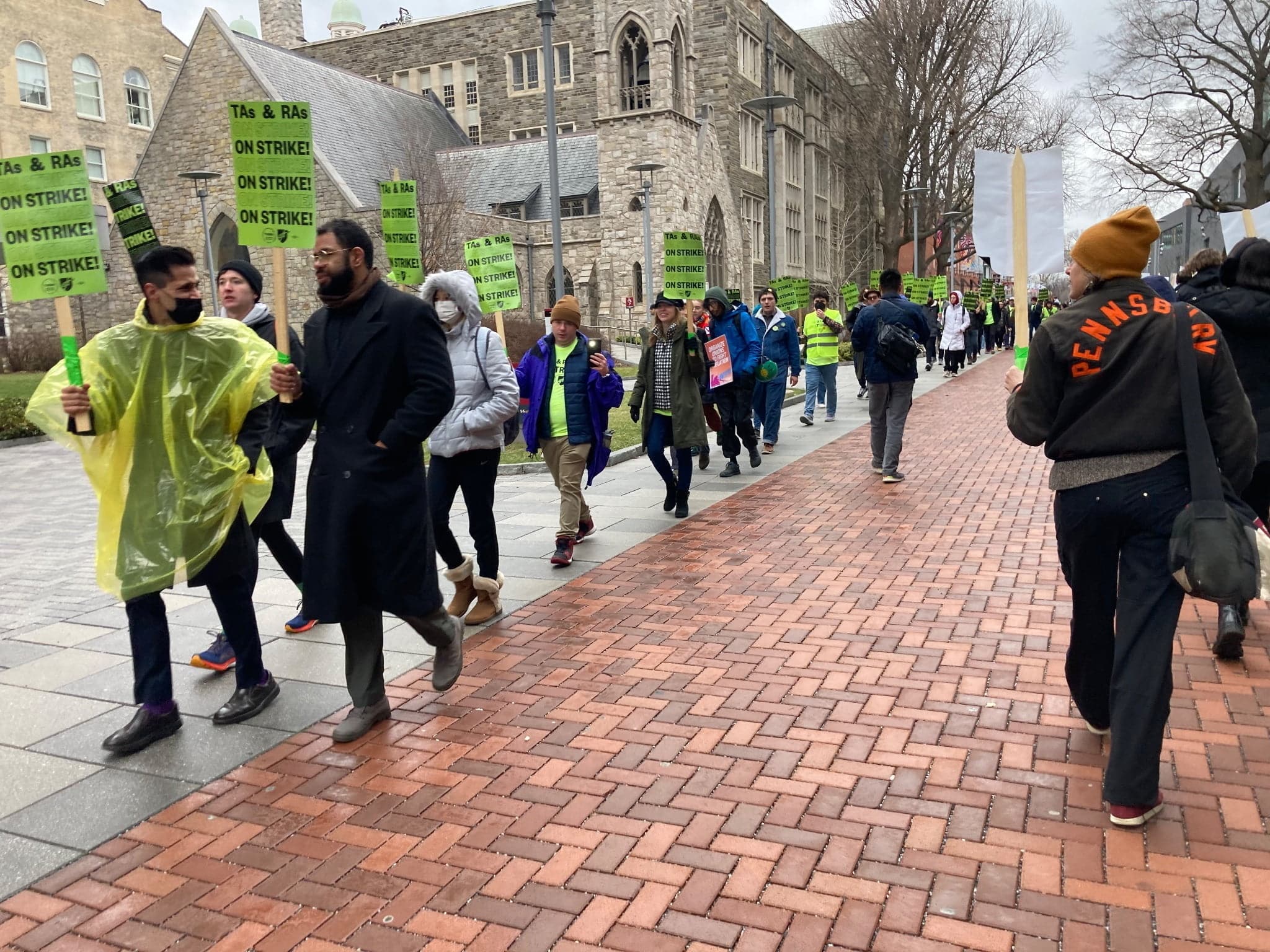Written by Hank Kalet
Today’s word is “adjunctification.”
Adjunctification is the process by which the gig economy is imposed on America’s colleges and universities and turns formerly tenured professors and instructors into contingent workers. Adjuncts are the part-time component of this, earning a fraction of what full-time faculty earn and having few of the protections enjoyed by their tenured peers.
Adjuncts like me (I teach journalism) struggle to earn enough to cover our bills, including health insurance. We often do not know if or how many classes we will be teaching until shortly before classes begin. This devalues our work and creates a disparity among faculty.
The National Center for Education Statistics reports that, in 1970, 77.8 percent of the 474,000 teaching positions in higher education were staffed by tenured, full-time faculty. Today, around 54 percent of the 1.5 million faculty members across the country are teaching full time. This does not take into account the more than 400,000 full-timers who lack tenure. Overall, according to most estimates, about seven in ten faculty members are contingent or casually employed.
I teach journalism and writing at three schools and my course load ranges from as few as two classes to as many as six or seven. During last year’s fall semester, I taught six classes and earned less than $22,000. I spend about fifty-five hours per week in the classroom or doing grading and prep-work. I’m in my car a lot, going from school to school. I have no say over the governance of my schools or departments. Still, I’m lucky. My wife works a corporate job with good pay and health care—which mitigates against the worst of what my colleagues face.
I love teaching. I believe what I do is necessary to the survival of our democratic culture, and college is about more than earning money. Teaching is a mission, a way to pay forward what I’ve received from all of the amazing professors I’ve been fortunate enough to learn from over the years.
Adjunctification is at the heart of the recently settledstrike at The New School and was part of the larger set of issues during the strike at the University of California’s eleven campuses. It has faculty at other schools—Rutgers, Northwestern, numerous institutions in Florida, and others—on a collision course with the bean counters in higher education who have transformed a public good into a privatized, money-making industry.
As the adjunct faculty union at Rutgers has been arguing during our contract negotiations, public universities are prioritizing their endowments, big-time sports and their reserve accounts, over education. More and more of the work is being done by people like my colleagues in our adjunct faculty union—most with doctorates or graduate degrees who deserve a more stable and affordable existence but are paid a fraction of what they are worth, and who lack access to health care or basic job security.
The corporate model we now operate under is bad for faculty, bad for students and bad for the country. Four-plus decades of politicians preaching austerity and privatization, belittling the humanities and the educated have taken their toll. Public funding of higher ed—both in terms of aid to schools and direct aid to students—is a fraction of what it was decades ago. Tuition has skyrocketed. Student debt has followed. And students are forced to make decisions they may not have made in a saner situation as they chase dollars to pay off their loans.
This harms students, graduates, instructors and schools, of course, but also damages society as a whole.
This column was produced by Progressive Perspectives, which is run by The Progressive magazine and distributed by Tribune News Service.
Hank Kalet is a journalist and poet who has covered local and state issues in New Jersey for 30 years. He teaches journalism at Rutgers University and writing at several local community colleges.






